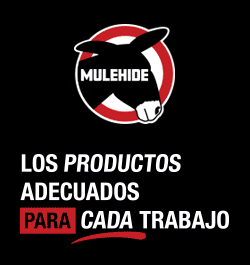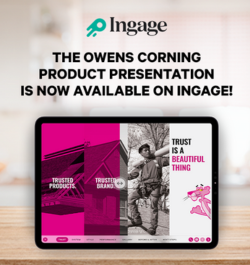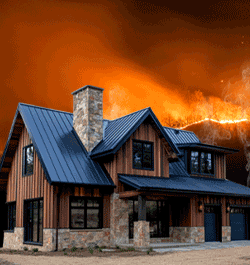Roofing Road Trip with Jared Ribble Part 1- PODCAST TRANSCRIPT

Editor's note: The following is the transcript of an interview with Jared Ribble. You can read the interview below or listen to the podcast here.
Heidi: Hello, this is Heidi Ellsworth, partner with Roofers Coffee Shop and I am here today with our next Roofing Road Trips with Heidi podcast. On the road, I'm able to see so many roofing friends and one of my favorites is Jared Ribble. Jared is the Director of Qualified Trainer and ProCertification programs for the National Roofing Contractors Association, or as we all know it, NRCA. Jared, welcome to the podcast.
Jared: Heidi, fantastic to be here. Super excited. Thanks for having me.
Heidi: Thank you. I have been so looking forward to this podcast and even just what we have been talking about ahead of it. I've learned so much, so I know the audience is just going to really be able to take a lot of this and apply it into their businesses and what's happening in the industry overall. But before we get to that, Jared, would you do me a favor and introduce yourself and tell us a little bit about your history and also how you got involved with NRCA.
Jared: Heidi, I'll tell you what, it's interesting how I got into NRCA because I grew up in the roofing industry. My dad was a roofing company owner, the great roofer, second generation. But when I was born, I was a little baby, he did not look down upon me and say, "Jared, I hope you're a roofer someday." Honestly, I wished that maybe he had, I wouldn't have been an awesome roofer. But instead, what he said is, "I hope you're happy and healthy and go off to do what you're passionate about, do it". And of all crazy things, I was passionate about beating on pots and pans. So from the time I was two years old, I pull out all the buckets and pots and pans in my mom's kitchen, and I would beat on them. And, so lo and behold, years and years of drum lessons and practice and training and over and over, I became a professional drummer, professional musician. I'm proud of my resume. I've drummed for over 20 Grammy or Drum award, American music award, Grammy winners. Then, on major television networks over 50 times drumming. Really great career, loved every minute of it. And to be honest with you, sometimes I still do it. You can't take the drummer out of it, but when roofing is in your blood and roofing is such a great industry. It did attract me back to it and it was just really thrilled to get a call from NRCA. They saw some skillsets that I had, dealing with management and putting up and putting on events and that sort of thing that they felt I could really be a great asset to them. So really honored to have joined the NRCA team couple of years ago and get back into the roofing industries. There are some great exciting new things that are being rolled out, that are changing the roofing industry and I had to be a part of it. So really excited to be on the team.
Heidi: I have to tell you, I'm really excited that you came back into roofing too. And as you know, I have a little bit of the music side in our family too with Megan who also works with Roofers Coffee Shop, and so I understand there's something about that roofing music connection that seems to keep coming back around and I like it. But today, let's focus on the initiatives that you're working on, pro certification, track and qualified trainer conferences. There's probably a lot of our listeners out there who maybe don't even know what any of those things are. So, I was hoping you could maybe start at a high level and really talk about these initiatives that are going on through the NRCA that you are really championing and working on.
Jared: Yeah, absolutely. I'd love to because we launched three initiatives simultaneously, and I think sometimes our roofers out there maybe get them a little jumbled. But you said the word high level, so I'm going to start really high. Okay. You got to remember what NRCA is. National Roofing Contractors Association. We're a group of roofing professionals. We come together collectively to make the industry better and we work with each other to help navigate bumps in our businesses and bumps in the industry. Okay. So one of the major issues that our members have passed us with working on and our members are working on was workforce development. Okay. How we attract more workers into our industry and how do we even keep the great ones that we have. So as we continue to zoom out on this issue, it really comes down to public perception problem. Okay. Because the public sees roofing as in, just as we're slapping on some shoes on a roof or slapping down some rubber. But yeah, they say that's hot, dirty work. Okay, fine. I get that. But that's like me saying to a surgeon, "You just slice someone open and move some stuff around, and sew them back up." We all know the incredible technology and skill that goes into any particular roof system. We're using robots, we're using science required for solar roof systems and my gosh, vegetative roof systems, how complex those are and intensively elaborate. And that the public doesn't even really realize how great this roofing industry is. All they want is to put their stuff and families under a working group. Okay. So because we've got this perception problem in the public, kids and young adults that are entering the workforce are not attracted to roofing as a career and, they're not understanding the skills and the math and the engineering that's all involved in. And so, NRCAs and our members stepped up and said, "We got to fix this perception problem if we are ever going to solve our workforce development problems." Yeah. We need to be able to show a clear career path to something great. And, while these young workers are on this career path, they do need to be learning and getting great mentorship and great training along the way. Okay. So that's the super high level. Now let's dive a little bit deeper into what we're doing now. Traditionally, NRCA, we've always stayed away some training, roof system training because each manufacturer has... They've got slightly different specifications and frankly, manufacturers do great training, Then there's other forms of great roofing training, whether it's unions or even some great trade schools. So the need for training, NRCA felt it's already been filled, so we've stayed away. But over time what our members realize is that there's a gaping hole in the training spectrum. The brand new worker that's just showing up at a company who knows nothing about roofing, they're not getting trained and because of the labor shortage out there, companies are so desperate that they hire this first body. They throw them up on a roof and they say, "Get to work. You'll figure it out, watch [inaudible 00:07:34] or watch Joe". And we call that the, you're going to learn in the earning environment. And roofing has been really that way for years. Right? Person knows nothing about roofing, but yet we're trying to make them productive and the... I mean you want to talk about frustrating a [form 00:07:54], throwing somebody up on a roof that doesn't know anything. But we're so desperate for bodies. So, so then what happens, right. The company sends that person off to manufacturer training and the manufacturers now are having to spend so much time teaching how to pull the hammer. Figuratively, when they want to be teaching the specs and how to actually install their systems properly. So, to solve this problem, NRCA created what we call TRAC. T-R-A-C, Training for Roof Application Careers. This is web-based, self-paced learning modules, which someone who knows zero about roofing, can come inside a roofing company and over time, self-paced, they can learn about the basics of roofing industry to get them to this place of what we call Conversational Competence. A foreman can say, "Hey go get those fasteners for me". So get this installation and the worker actually knows and has some idea how to because conversationally competent up on the roof. So TRAC is an onboarding training tool for the basics. Okay. This would never turn someone into a skilled roofer. That takes years, and that takes a lot of prep. This is onboarding teaching the differences in insulation, or the differences between a low slope and steep slope roof. I mean basic stuff. What are fasteners? What types of fasteners you use for certain situations? Basic stuff. So, but now, as with any training, it's always better, NRCA believes and we could all agree that some guidance and mentorship along the way, it's going to that new worker along way. So, if a company is using this TRAC program, these online web-based modules, we encourage that company to raise up someone right within the walls of their company to be a great trainer. So then, that great trainer can partner alongside of this newly hired person and help guide them. That trainer can say, "Hey, watch these modules on low slope installation or what have you. And then when you're done, let's go out into the shop and let's practice with me, let's practice cutting some of those installation around penetrations or what have you." So alongside this incredible learning tool of TRAC, we are asking companies who want to take training really seriously, raise up someone inside your company to be a great trainer. We are calling that person a Qualified Trainer, someone responsible for the training efforts inside the walls of your company. So we've put together what's called the Qualified Trainer Conference, where we teach these great training techniques and give guidance on how to put together a great training plan for your company. Okay, so you've got TRAC, it's a training tool that you can use to onboard someone at your company. Then we've got the Qualified Trainer, it's someone inside your company who you've been raised up to check on the training initiatives at your company. All right.
Heidi: Excellent.
Jared: So, all for the new worker, onboarding and we'll the back, I would say probably in the 80s. There was a really big push for safety. We have to have better safer conditions on the routes. So now most companies employees' some safety officer. Okay. It'd be a rare company that doesn't have some safety officer on their [staff 00:11:48], or at least, even maybe even on every job. Well, what we are now saying is training is so important to worker retention. It's so important to getting better, more productive workers, that every company should raise up a training officer, a qualified trainer, if you will. Okay?
Heidi: Yeah.
Jared: Yeah. So, to all of this stuff is for raising up better work. TRAC and the Qualified Trainer, they are mutually exclusive. You can get TRAC and install that inside your company, and that's great. You can send someone to the Qualified Trainer Conference and raise them up to be a great trainer. But where it really gets awesome is when the qualified trainer inside your company, uses the tools we've created to better the training outcomes right inside your company. It gets astonishingly great. Now, I'm not going to get into the statistics of it, but just spend a moment on Google and one of the great outcomes will be how you will better retain your workers. Because this generation, this next generation, they want to be trained. They actually work hard. You may not think they do, but they will not work hard unless they know what they're doing. So, in this traditional learning-earning environment, you throw them up on the roof and say, "Start working", and they don't know what to do, so they stand there. "Next generation doesn't want to work". That's not true. They require some training and they require training and you don't want to... Well, "I don't want to do it that way". Well, okay. But the companies that step up and start employing a training officer, a Qualified Trainer, their retention is going to go way up. Spend some time on Google, you'll see this too... You'll see the statistics. So it's all right.
Heidi: Yeah, we see it all the time. I mean really when you're talking about this next generation has not been out on the roof, has not been... Sometimes, just because we had such a focus on college and on technology and video and everything else, they didn't get that opportunity to learn outside as much as probably generations before. So you're right, we need to think about that and we need to train people in a way that makes sense, so that they can be successful. And I think what you said, also, you can't just put people up on the roof without giving them a little respect too. And so all of that is coming into play.
Jared: Yeah, absolutely. So we know that TRAC, the online modules, paired with a Qualified Trainer is going to revolutionize how we are onboarding and attracting new workers into our industry. So, I get really excited about that. You can hear the smile in my voice because this is changing the roofing industry. So it won't change it in 10 days or even six months. But I'm telling you get this stuff going inside your company and within 12 months, you're going to see a dramatic difference. So anyway, but that's all for the new worker, onboarding the new worker. We would be remissed to neglect the fact that there are 1000s upon 1000s of really excited, very skilled, highly skilled workers already in the workplace. But if we go back to this perception issue, one customer that calls up to roofing companies doesn't know and doesn't have any idea if the claims of that roofing company, [saying 00:15:47] our workers are skilled. They both say that the workers are skilled, but there's really been no way to prove it. And furthermore, there's no way to measure the skills of a roofer until now. We have what's called Pro Certification. So Pro Certification is the way for us to measure the skills of a roofer. So, but roofer actually can have some evidence and some proof that they actually are in fact do have the experience and do have the skills that they claim. Okay. So an order to get Pro Certified, you got to be [three things 00:16:27], you have to apply and your application has to be accepted. To pass application that shows that you have some level of experience, some real experience in the roofing system you want to get certified in. And then, you're going to take a knowledge-based exam,, it's just done on a computer at a Proctor testing location. And then you're going to take a hands-on performance exam. So, that way you can show in fact, that you do have great skills in a particular roofing a system. So Pro Certification is the very first ever roofing installer certification. And it is a way for the already experienced and skilled roofer to prove that they are in fact great. So, those three initiatives, TRAC for the onboarding the new worker, Qualified Trainer helps that new worker and builds training initiative inside of the company. And then Pro Certification is for the skilled worker that wants to be able to prove and verify to a standard that their skills measure up. So three very separate issues. And for anyone listening right now, you might be in your truck, you might be up on a job site, you might be mowing your lawn or taking a shower, I don't care, but we're all going to say it together. Okay. NRCA training does not lead to Pro Certification a better. Let's say it this way, you do not need NRCA training to become pro certified. Let's say that altogether, "You do not need NRCA training to become pro certified". Okay-
Heidi: I love it.
Jared: We might say it about couple more times throughout the course of this podcast. Right? Because these are three separate things.
Heidi: Exactly. And that is I think, one of the most important things that we're going to really talk about in this podcast, is that they are three separate initiatives. But all are so critical to the professionalism, to the growth of our industry and more so, to recruiting and maintaining great labor and talent. And so, Jared, I'd like to start with the Pro Certification. I want to break this up a little bit because I know pro certification, I was actually at a lot of the NRC meetings, as this was being discussed. I know how much time has gone into this and how important it is. I really love the fact that we are going to be highlighting the excellence of roofing professionals as they become certified. It's something we all know, but now we're going to be able to share with construction overall and all of our customers out there. So, as we get started with this, let's go directly. Let's talk a little bit about some of those rumors and myths that you've been hearing out there because we're hearing him on the coffee shop too. And people are like, "How's this going to work? Is it going to hurt me? Is it going to help me? So maybe let's start there with some of that demystification.
Jared: Yeah, sure. So, I just said it and I'm telling you the biggest myth is that Pro Certification is a training program and you go through it and then you get certified at the end of it. No. I cannot say emphatically enough. No, no. Pro Certification is for the already experienced and skilled worker. And you do not need to take any NRCA trainings to get there. Okay, let's break it down to driver's license, and I... Okay, Heidi, how did you learn to drive a car? You might've been 15 or 16 or 14, I don't know where you come from. How did you learn how to drive a car?
Heidi: Right. Yeah, people teaching you because grew up on a ranch, so I was driving very young. But yes, people are teaching how to do that.
Jared: Okay. So, you had someone that was teaching you how to drive around a ranch? Where at? Texas or-
Heidi: Oregon.
Jared: I don't know... Oregon, you said, right?
Heidi: Yes.
Jared: Okay. So do you know that... And did you have to take any type of classroom education, do you remember? Or did you just show up, and say, "Hi, I'm 16, I'm going to go take my exam." how did you do that?
Heidi: Well, I grew up a little while ago, so when we were on at that point, yeah. By the time I was 15 and wanting to get my permit, I already knew how to drive. So then, it was just a matter of reading the book to make sure I could pass the written test.
Jared: Okay. So you did have to pass a knowledge test?
Heidi: Yes.
Jared: And you did have to... I'm assuming you did take some behind the wheel driver's test, correct?
Heidi: Yes.
Jared: Yeah. Okay. So you took a knowledge test and a performance exam, interesting. Just how we have to verify a roofers knowledge and skills too. They take a knowledge testing, the performance test. Well, okay. And you learned how to drive on a ranch with someone teaching you, "Hey, here's how you do it." Okay. So, and you know where, how I learned how to drive? I learned how to drive out on in the cornfields of Wisconsin.
Heidi: Perfect.
Jared: Yeah. Sort of similar circumstances, but my parents did eventually purchase some actual behind the wheel instruction, some real legitimate training. Okay. You know how my wife learned how to drive? She learned how to drive in a parking lot of high school. I've got another buddy who was Griffith in Phoenix and they only learn how to drive in simulators. So you learned how to drive in a ranch. I learned how to drive in a cornfield. My wife learned how to drive in a parking lot and my buddy learned how to drive in a simulator. We do not care, getting back to the myths of Pro Certification. NRCA does not care how you got your training, just like a driver's license. You can learn any number of ways, but we all took about the same knowledge tests, we all took about the same performance exam. And Heidi, If you were to come drive in Tennessee, we're going to pass each other on the road where I learned and I'm going to trust that you know how to stop at a stop sign. You know how to treat a four-way stop. You're going to stay, you're not going to pass when there's a double solid line down the middle of the road. It's funny how we all got training different ways, but we took the same exam and we all have that card that gives us some level of trust out on the road. Pro Certification and demystifying it, that's the biggest myth is that you have to take certain training and you don't. You do have to be skilled, somewhere along the way, you're going to have to have gotten trained, whether it's a manufacturer, maybe it's a union, maybe it's similar to you on a ranch and you're just working next alongside of your dad on a ranch. I don't care. Take the exam, prove that you have the skills and the knowledge. Okay. That is the biggest meth, and I'm sorry, we just took a long time sitting there. But the driver's license example I think is so appropriate. Okay. The other biggest, big myth is companies will tell me, "We can't afford to certify all of our guys". and I understand and that, but you have to remember that not every person at your company has the experience and skill level to be certified. Okay. Because you're going to have workers that are fresh off the street who are going through TRAC and they don't know anything, or they're learning things through TRAC and the Qualified Training Program, you may have workers that have been there for a year or two. But they really only got the skills to do one or two things really well. And they would never be able to qualify to earn their certifications. So companies that say, "Well, I've got a 100 employees, I could never afford that". It's not for all 100 employees. It's for your experienced skilled workers, and so it's not cost prohibitive. We can get into the cost a little bit, but those are the two biggest myths. I will talk really briefly about unions. There's a whole concern with our union contractors who we love dearly and they're members of our association and we represent them as well. And union contractors, they said, "Well, it sounds like you're competing directly with our apprenticeship programs". No, that's another big myth because Pro Certification is not training. Unions have a prime opportunity to use Pro Certification to there advantage to say, "You've gone through our apprenticeship programs, you'd qualify to be certified. Now let's get you guys certified. So we as union contractors, can prove that our training is [stuck 00:26:16] and is so good." Right? So you unions have a tremendous opportunity here and I really love to engage the union contractors and help them see it through the different lens. It's not competition. This is something that union contractors can use to their advantage. And frankly, I mean, it's the way any contractor can use it to their advantage. You're training your folks, here's a way to prove that you're training [stuff 00:26:42].
Heidi: Well, you're really giving back to your employees. Those employees who are excellent craftsmen and women, who can become certified are such... It's a great thing for them and for their career, and it's a great thing for the company. The reflection, the professionalism, that all goes along with that. And I think whenever something's new, there's always fear. It just doesn't... So, these rumors on really some of the myths that are going along with this, it's just because people don't really understand why you need to be certified. So ,maybe talk to that just a little bit, as in the benefits to both the employees and the roofing contractors and the companies of having a certified workforce. I know may seem obvious, but just share, Jared why should they do it?
Jared: Sure, yeah. And ultimately, it always comes down to that. You're doing this big shift in the industry. Why do we care? Why can't it just be business as usual? And again, business as usual, is not working when we all get together at our NRCA meetings and they're saying, "We've got worker shortage problems, we've got labor, we need better workforce initiatives", and so on and so forth. So, there has to be a change. If there's not a change, we're going to continue to really struggle. And again, going back to perception, roofing is the only trade which doesn't have a certification. I mean, though they do now, because we've launched Pro Certification, but up until now, it's the only trade association that has not had a certification, a way to verify the skills of a worker. So the first why and there's multiples, but the first why, is it's trying to get the roofing industry on par with the other trades. I mean, how many times have we heard, "My nephew, he was getting on high school and didn't want to go to college, and he looked at roofing but he chose electrical." Why did he choose electrical? Because now you can get certify, there's a clear path, a clear career path in electrical. So now with Pro Certification, roofing industry has a clear career path and a real certification that verifies skills. But there's more issues here of the why and the perception. So, when I go out and speak, I tell the story of my dad going out on an emergency repair in the middle of the night, elderly gentleman heard a boom, there's water pouring into his house. And in that elderly gentleman, all he had was the phone book at the time to drop his finger on and hope that the person that was coming out to do the repair knew what they were doing. And how awful is it that consumers with protecting their most prized possessions, our families are our most valuable assets under a roof that needs to work. How terrible is it that the consumer has to soak that the job's going to get done right. And of course, this great roofers out there that do get the job done right. But then of course, there's enough bad apples that don't, and the perception goes down. So Pro Certification is a measuring stick. It's a standard by which a great roofing skills can be measured against. So, you think two roofers side-by-side, one says, "You know what, I'm great and I'm going to prove it by getting certified", they separate themselves out from the roofer that doesn't get certified.
Heidi: And then, it's so normal in so many different industries. People are used to going and looking to see if people have certifications. We use this every day in our lives, and we are not giving our consumers the opportunity to do that in roofing. I just think that's an excellent point.
Jared: Yeah. So, it's the greatest, I mean, I don't think it's overstating to say this is the greatest consumer protection initiative the roofing industry has ever created. But I think, that message can sometimes fall on deaf ears to roofing contractors because in every roofing contractors [mine 00:31:14] say, "We're great. So our consumers know that they're getting a great roof." And now I'm just saying that a roofing company can use this to their advantage to prove it, and to really differentiate themselves from the companies that refuse to get certified guys or are not willing or for that matter, just simply can't pass the exams, can't prove it because they really don't have the skills and the knowledge-
Heidi: Exactly.
Jared: So I mean, I remember, man, growing up, I would just hear my dad bellyache and bellyache against the storm chasers. And there are some legitimate companies that do go behind storms and and do great work. Right. But I just remember this massive hailstorm that fed the roofing companies in the area that was growing up for years because it was just the backlog of work and how my dad would just complain about all of these storm chasers that would come in and do such a terrible job. And the consumers just had no idea of the difference. And my dad had no way to differentiate himself from the companies that just came in and didn't know what they were doing. So Pro Certification, it is a huge bonus and benefit to the roofing industry and the consumer alike. Now-
Heidi: I agree. I think just to your point, real quick Jared, about the roofing companies out there who are working the storms, whether the restoration contractors or all the different contractors out there. I think Pro Certification, in all honesty, is a great opportunity for those companies also, to show their talents and their skills. Because you're right, there's a perception that it's not always true. And this really is going to just take all of that away and say, "Okay, you either are certified and can have the skills and are showing it and doing things the right way or you're not." It's a real... In some ways, as much as a differentiator, it's also an equalizer.
Jared: Yeah, sure. We've talked about perception a little bit, we've talked about some myths, and a why. Another perception myth and why is dealing with subcontract crews. The myth is, "Well now, I can't use subcontract waiver", and that's not true at all. You can use subcontract [labor 00:33:52]. We want the subcontract crews to get certified, the industry needs it. They are a valuable asset to what the roofing industry is and the production and the productivity of the roofing industry. So here's a way to start changing the perception of subcontract labor. Where I'm from, I see working companies have on their websites, "We only use our own workers, no subcontract crews", and well, if that's what you're using as a differentiator that you don't use subcontractors, I don't think, that doesn't go very far. What's to say that the workers that are going to be on your roof, at least a handful of them or maybe it's the foreman or the crew leader is going to be certified. Subcontract crews, absolutely, let's get them certified and here's an opportunity for them to step up and say, "No, we are great, don't be putting us in a lower category here", because we all know there's some great workers out there that just are working on sub periods. So, that's great.
Heidi: Exactly. And they need an opportunity to be able to... This will enhance their value also as they are looking for taking on projects and they're able to get onto those projects because they are certified and they're really made that difference. It's great. So, go ahead.
Jared: I was going to say, can you imagine whether it's any labor where there's a subcontract crew or a labor or comes to the roofing company and says, "Hey, I'm I'm pro certified in this roofing system and I'm looking for a job." You think that that doesn't carry a lot of weight versus someone else just showing up at the door saying, "Yeah, I'm skilled, I know what I'm doing." Really, where's your certification? What about a same thing with a subcontractor. They come, "Hey, use our crew, use us. We've got a couple of our guys certified." Major difference for the roofing company to know that who they're hiring, is in fact who they say they are. So, this thing goes all the way around in circles and help them.
Heidi: It really comes back to that professionalism, and this is a little off topic, but I think it goes exactly to the heart of what you're talking about as how much work the NRCA and roof pack have put into really telling the message of the roofing industry and that and really showing the professionalism of it, not just on an advocacy level, but also with our customers and building owners and general contractors. And this really now, is something tangible, that they can point to, to say, "Yes, these are roofing professionals. They're certified, they can really show that they're masters of their craft."
Jared: Right, and Heidi, let's not forget worker pride. I mean, think about a holiday party, "What do you do?" "I'm a roofer", and people because of that perception, but how different is it to be able to say, "I am a Certified Master Installer in this roofing system." Whoa, this is a little different conversation now. And we all hang our heads just a little bit higher, it's perception, perceptions nebulous. It's weird-ass to talk about. But, I keep pointing back to it because this problem, Pro Certification fixes so much of it. Worker pride is huge. The other myth, here's another myth. Well, I don't want to invest in my workers and get them certified just to have them leave. Okay. It is fair that there is movement within workers. But again, going back to Google, google some statistics, that when you invest in your workers, more likely they feel that they're cared for. They feel pride at your company and they stick around. Now also remember, these are your skilled and experienced workers who have likely been around for a long time and already proven themselves. Okay. So it's not like they're just walking, but this certification is a certification for the installment. Okay. This is not for the company. This is a certification for the installer. If that worker leaves, that worker leaves with their certification because it's attached to their name. So, that is something to know. But the fear is, they're going to leave, or the other, even the biggest fear is they're going to get poached. Well, okay, poaching is happening anyway. And if you think that your experienced worker is not already on the radar of a company wanting to poach them, you're wrong. So poaching is already happening. So, if you get your worker certified, there's actually a better chance that they're going to stick around, they'll stick with you.
Heidi: Exactly.
Jared: So, this doesn't solve poaching, this doesn't stop poaching. The poaching is already happening and your worker is already identified as someone who will... Your work has already been identified by your competition. So, let's not use, "I'm afraid they're going to get poached". Well, they might leave your company because you're not willing to help them get certified and go to the company that does. So anyway, that's just [miss 00:39:43], miss come to my brain [inaudible 00:39:43] talk about, it's right.
Heidi: I think it's perfect and I really agree. I mean we have done, on Roofers Coffee Shop has panels, our influencers have been writing about this, that we are really looking at how a culture of a roofing company is going to be one of the most important elements of recruitment and retainment of talent and labor. And really what you're talking about is part of that culture. It's a culture of training, it's a culture of respect and really acknowledging and celebrating the master-craft and the skills of our roofing professionals on the roof. I just want to say thank you to Jared and you know what? We have more. In fact, we had decided we had such a great podcast. It's such a great conversation that we need a two parter. So at this point, I want to thank Jared for everything he's talked about with Pro Certification, the amazing program that it is. And I would like to invite all of you to join us for part two, where we're going to talk about training and about Qualified Trainers. So two parts, more Jared to come. Thank you Jared. We will be back with part two and you'll learn more about the training that's coming your way from NRCA.























Comments
Leave a Reply
Have an account? Login to leave a comment!
Sign In